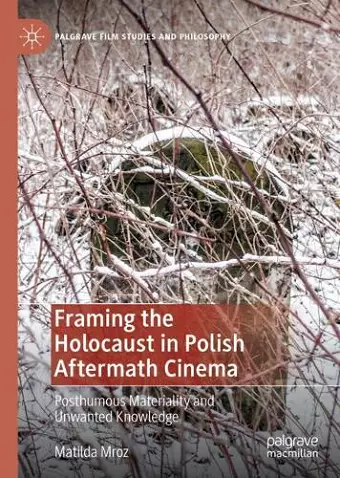Framing the Holocaust in Polish Aftermath Cinema
Posthumous Materiality and Unwanted Knowledge
Format:Hardback
Publisher:Palgrave Macmillan
Published:10th Feb '21
Currently unavailable, and unfortunately no date known when it will be back

This book offers a unique perspective on contemporary Polish cinema’s engagement with histories of Polish violence against their Jewish neighbours during the Holocaust. Moving beyond conventional studies of historical representation on screen, the book considers how cinema reframes the unwanted knowledge of violence in its aftermaths. The book draws on Derridean hauntology, Didi-Huberman’s confrontations with art images, Levinasian ethics and anamorphosis to examine cinematic reconfigurations of histories and memories that are vulnerable to evasion and formlessness. Innovative analyses of Birthplace (Łoziński, 1992), It Looks Pretty From a Distance (Sasnal, 2011), Aftermath (Pasikowski, 2012), and Ida (Pawlikowski, 2013) explore how their rural filmic landscapes are predicated on the radical exclusion of Jewish neighbours, prompting archaeological processes of exhumation. Arguing that the distressing materiality of decomposition disturbs cinematic composition, the book examines how Poland’s aftermath cinema attempts to recompose itself through form and narrative as it faces Polish complicity in Jewish death.
“The book is an original and important contribution to the field of Holocaust cinema studies that have developed so far ... . Due to its broad scope and comprehensive film analyses, the book will be useful for advanced undergraduate and graduate students as well as scholars working in the fields of film studies, Holocaust studies, Slavic studies, and Jewish studies. ... Mroz’s book is an important step on this path towards accepting ‘unwanted knowledge.’” (Elżbieta Ostrowska, The Polish Review, Vol. 69 (2), 2024)
ISBN: 9781137461650
Dimensions: unknown
Weight: unknown
298 pages
2020 ed.